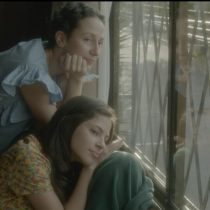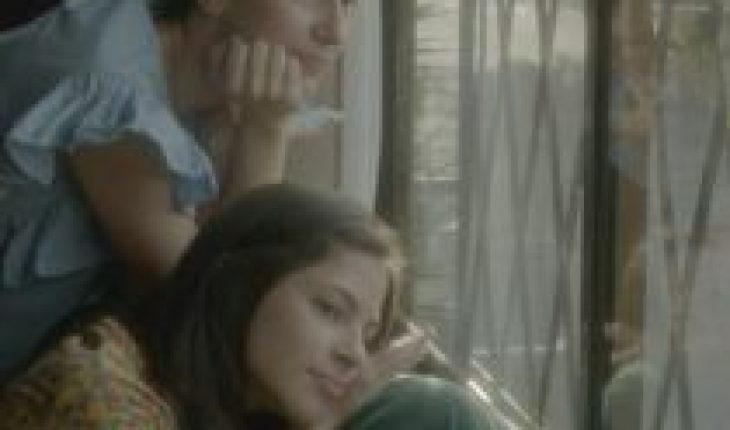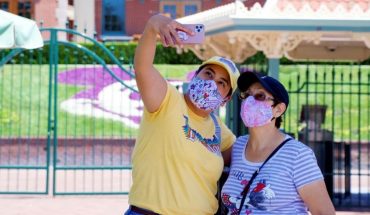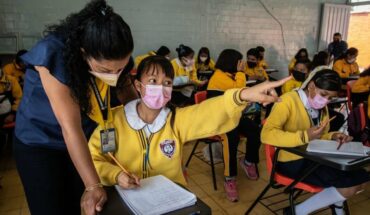
They are films made by women. And it shows. In the choice of themes, in the way of telling the story, in the look, in the choice of protagonists, in the way of filming and even in the treatment of time.
A good sample of them can be seen from this Tuesday 15 and until next Sunday 20 in the framework of the International Women’s Film Festival of Dortmund-Cologne, here in Germany.
“Films made by women are characterized by a way of telling their own, which is not linear-patriarchal,” says Maxa Zoller, artistic director of the festival, in dialogue with DW.
Maxa Zoller, artistic director of the Festival.
“The epic of the hero is not told, in which he comes, sees and saves everyone, but they are complex stories, with several levels or ‘layers’, that are interweaved like a loom, in which often the notion of time is circular”, explains the curator.
The festival will show, almost entirely virtual due to the pandemic, 70 films in different sections: in competition, “In focus: the connection between plants, people and other animals”, “Precious section: feminist and queer films”, “Panorama” -dedicated to documentaries- and “Child-Youth”, among the main ones.
Dortmund-Cologne International Women’s Film Festival.
“We look for films where women have a leading role, as this is not very common in films made by men,” zoller says.
“The themes do not have to be ‘the great heroic protagonist who conquers the whole city’, but they can be the smallest, everyday issues that bring the drama, the plot of the film,” he says.
Women behind and in front of the cameras
“Aurora”, by the Costa Rican Paz Fábrega, -which talks about motherhood from the point of view of two women at very different times in life, who end up meeting and getting involved in an unexpected way-, will be in charge of opening the Festival.
Paz Fábrega, Costa Rican director (“Aurora”)
“This film was for me like a way to talk about some things, but also to live them. I started it when I was pregnant, and to do it, with my son of just a few months of age, was to be able to become a little more me at a time when I felt “kidnapped”, for having to choose between being alone with him or continuing to participate in the world, “fabrega tells DW.
“When we made the film, we were three moms who were with babies still breastfeeding: one of the actresses, the cinematographer and myself. And I think that allowed us to explore and do what we needed,” says the director from Costa Rica.
Scene from the film “Apenas el sol” by Paraguayan director Arami Ullón.
Also of the departure will be the extraordinary documentary “Apenas el sol”, by the Paraguayan director Arami Ullón, in which the camera accompanies the journey of an old man of the Ayoreo indigenous people, while he records – as he has been doing for decades – the testimony of the members of his community.
“In the film, Mateo Sobode Chiqueno crosses the arid and desolate Paraguayan Chaco recording on magnetic tapes the stories and songs of other Ayoreo elders who, like him, were “plucked” from the jungle, and lost their ancestral territory, their loved ones, their livelihoods, their beliefs and their home,” Ullón tells DW.
Arami Ullón, Paraguayan director (“Apenas el sol”)
Meanwhile, in competition will be the subtle and beautiful work “Las mil y una”, by the Argentinean Clarisa Navas. “My film comes from very personal experiences, from having lived in the same neighborhood where the whole film takes place,” says the director born in the northern and impoverished Argentine province of Corrientes, in dialogue with DW.
“I think it was born from an urgency that has to do with creating another type of existential territories, where living conditions oppress and often make you think that nothing is going to be possible. It is a film that is armed against all those impossibles of the present to create new affections, “shares Navas.
Scene from the film “Las mil y una” by Argentine director Clarisa Navas
And what is Latin American cinema made by women like?
“We have a large presence of Latin American films in this edition of the Festival,” says Zoller. “It’s of extraordinary power what’s being filmed there today,” he says.
“In many cases they are directors who, under conservative and even violent pressure, are able to move forward, find solutions and tell their story wonderfully,” she adds. “I think we have a lot to learn from the continente”, stresses the expert.
Clarisa Navas, Argentine director (“Las mil y una”)
“Latin America is still a continent where being a woman carries a continuous risk. One grows with the daily news of femicides and violence of all kinds, “says Navas.
“In the face of this immense pain, I feel that we are in a different way, with a particular sensitivity towards certain ephemeral details of life, of affection, of contact with others, with films that seek to reinvent logics from feminism and other types of being more minority”, reflects the director from Argentina.
“I believe that the female narrative has a very deep sensibility, full of subtlety and, at the same time, of a forceful force,” says Ullón. “Latin American cinema made by women is poetically political: it does not need to be explicit to establish a clear and firm position,” summarizes the director.





